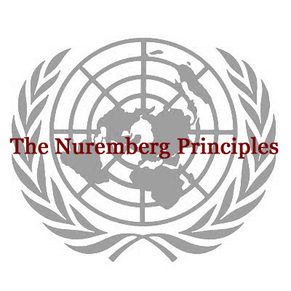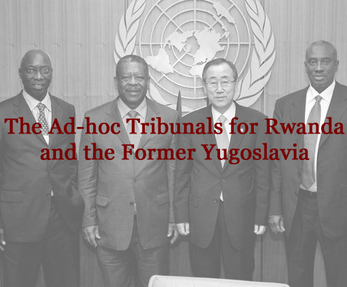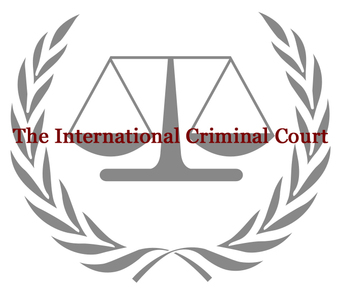“Nuremberg was little more than a beginning. Its progress was paralyzed by cold-war antagonisms. Clear laws, courts and a system of effective enforcement are vital prerequisites for every orderly society. The matrix for a rational world system has countless parts that are gradually and painfully being pressed into place.”
- Benjamin B. Fercencz, Prosecutor in the Subsequent Nuremberg Proceedings
The International Criminal Court Logo (The International Criminal Court)
Banner: Proceedings at the International Criminal Court (Voice of America)


